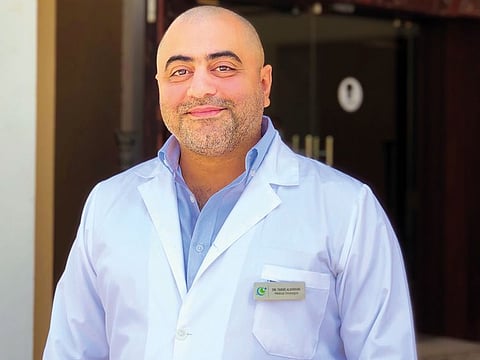Advanced Care Oncology Center: Cancer, a complex and challenging disease
Cancer remains a formidable challenge, claiming millions of lives worldwide each year

Cancer is a complex and multifaceted disease that has plagued humanity for centuries. It is characterised by the uncontrolled growth and spread of abnormal cells in the body, leading to the formation of tumours or the invasion of nearby tissues and organs. Despite significant advancements in medical science, cancer remains a formidable challenge, claiming millions of lives worldwide each year.
Causes of cancer
The causes of cancer are diverse and multifactorial, involving a combination of genetic, environmental, and lifestyle factors. Genetic mutations play a crucial role in the development of cancer, as they can disrupt the normal regulation of cell growth and division. These mutations can be inherited or acquired over the course of a person’s life due to exposure to carcinogens such as tobacco smoke, ultraviolet radiation, and certain chemicals.
Environmental factors such as pollution and exposure to toxins also contribute to the development of cancer. Additionally, lifestyle choices such as poor diet, lack of physical activity, and excessive alcohol consumption can increase the risk of certain types of cancer.
Types of cancer
Cancer can affect virtually any part of the body and is classified into over 100 different types based on the location of the tumour and the type of cells involved. Some of the most common types of cancer include breast cancer, lung cancer, prostate cancer, colorectal cancer, and skin cancer.
Each type of cancer has its own unique characteristics, symptoms, and treatment options. For example, breast cancer may present as a lump or mass in the breast tissue, while lung cancer often manifests as persistent coughing, chest pain, or shortness of breath. Skin cancer, on the other hand, typically appears as changes in the skin, such as the development of new moles or irregularities in existing moles.
Treatments for cancer
The treatment of cancer depends on several factors, including the type and stage of the disease, as well as the patient’s overall health and preferences. The main methods of cancer treatment include surgery, chemotherapy, radiation therapy, immunotherapy, targeted therapy, and hormone therapy.
Surgery is often used to remove localised tumours and is most effective when the cancer has not spread to other parts of the body. Chemotherapy involves the use of powerful drugs to kill cancer cells or stop them from growing and dividing. Radiation therapy uses high-energy rays or particles to destroy cancer cells and shrink tumours.
Immunotherapy works by harnessing the body’s immune system to recognise and attack cancer cells. Targeted therapy focuses on specific molecules or pathways that are involved in the growth and spread of cancer cells. Hormone therapy is used to treat cancers that are hormone-sensitive, such as breast and prostate cancer, by blocking the production or action of certain hormones that fuel the growth of cancer cells.
In addition to these conventional treatments, many cancer patients also benefit from supportive therapies such as pain management, nutritional support, and psychological counselling to help cope with the physical and emotional toll of the disease.
Cancer is a complex and challenging disease that affects millions of people worldwide. While significant progress has been made in understanding its causes, types, and treatments, much work remains to be done in the fight against cancer. Continued research, education, and advocacy are essential to improving outcomes for cancer patients and ultimately finding a cure for this devastating illness.
— The writer is Head of Medical Oncology at Advanced Care Oncology Center



